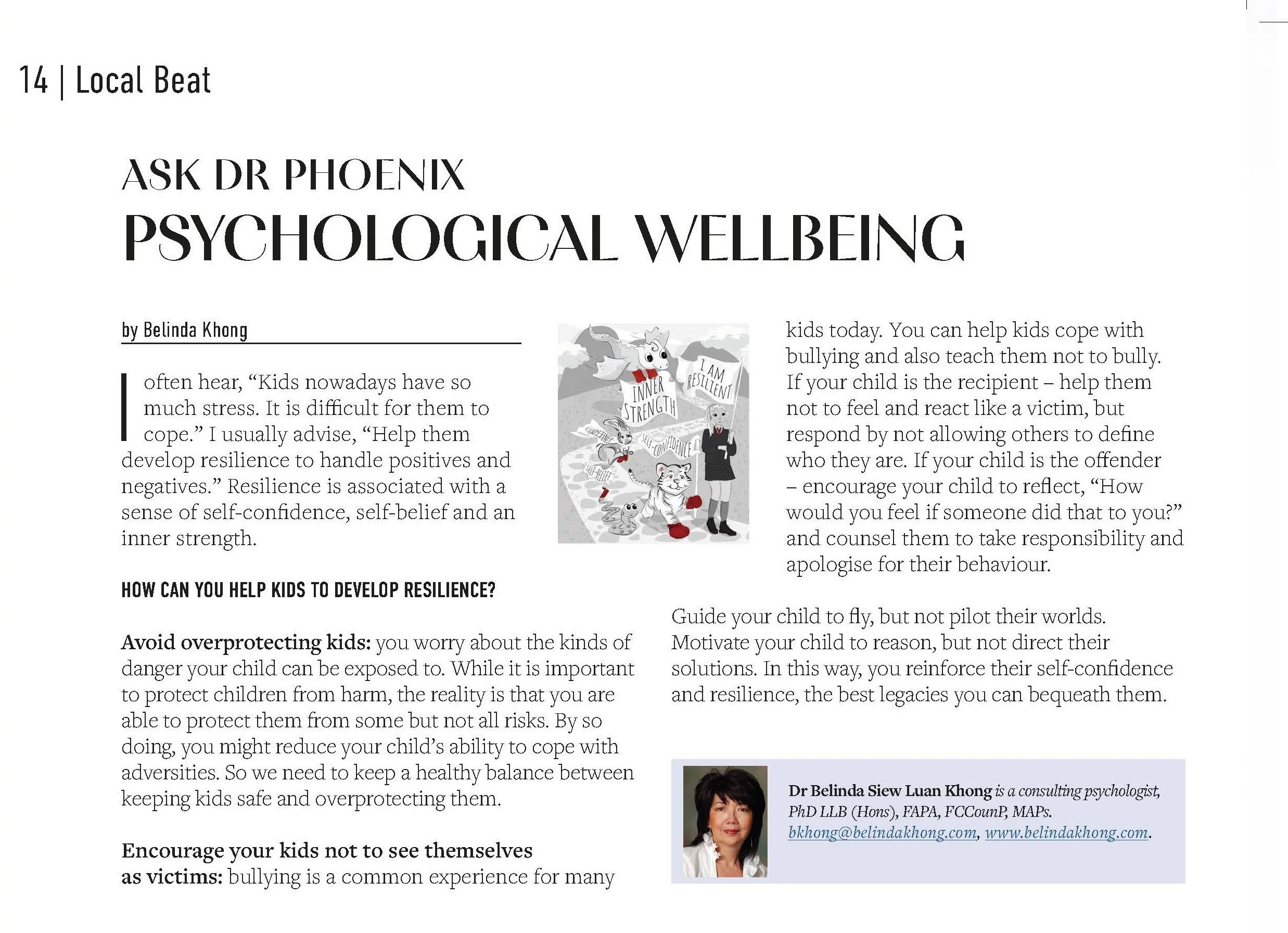In my September column for the Sydney Observer magazine (p.14) https://sydneyobserver.com.au/wp-content/uploads/2025/08/Observer0925.pdf
I write about how to help kids to cope. I often hear “Kids nowadays are experiencing a lot of stress. It is difficult for them to cope.” I would advise “Help them cultivate resilience.” In my view, resilience is one of the most essential attributes adults and kids can cultivate in developing psychological wellbeing.
What is resilience?
Resilience speaks to an ability to manage and overcome adversities and obstacles, and to bounce back from challenging situations with adaptability. It is associated with a healthy sense of self-confidence, self-belief, competence, and an inner strength.
Helping kids to be resilient
How can you help kids to strengthen their sense of resilience? Here are some of my recommendations:
· Avoid overprotecting kids
It is important to protect kids from physical harm. However, the reality is that you would not be able to shield them from all risks. If you try to do so, there is a significant likelihood of diminishing your children’s ability to be emotionally resilient and learn to cope with a range of situations. So we need to keep a healthy balance between keeping kids safe and overprotecting them. Offer kids choices about how to manage their concerns grounded on the belief that they could cope from the inside out while you support them to try out various options – the idea of teaching kids to fish, rather than giving them the fish. This is a good antidote to overprotecting your child.
· Help kids to work out answers themselves
A resilient kid is one who is able to reason and problem-solve. I advise parents to stop hovering over their kids and piloting their worlds. In this age of instant information, you would be right in not allowing your child easy screen time on devices and access to social media. I share similar beliefs. However for older kids who have to source information from the internet for research and schools projects, the issue is more complicated. How do kids learn to differentiate legitimate information from misinformation? It is important for older kids to develop the ability to reason for themselves and build the confidence to make informed decisions about what they read on the internet and not to do use social media indiscriminately. You can nurture this discernment skill by encouraging them to first work out their own answers. When you build up your kids’ confidence to think for themselves, you are reinforcing their self-belief that they will be able to use their power of reasoning to work through unfamiliar situations.
· Encourage kids not to see themselves as victims
We hear and read about kids being bullied in school or on social media and the negative impact these experiences have on their mental health. You can support your kids in coping with such negative actions by helping them to:
Appreciate that sometimes people may be acting from ignorance rather than malice
Not see themselves as victims and to use their resilience and inner strength to transcend the situation
Not let others define who they are and what they choose to be.
Each of us can be a victim or a hero in our personal journeys as we have the capacity to be the authors and editors of our lives. You can help foster children’s resilience and psychological well-being by helping them to cope and manage both the negatives and positives.

